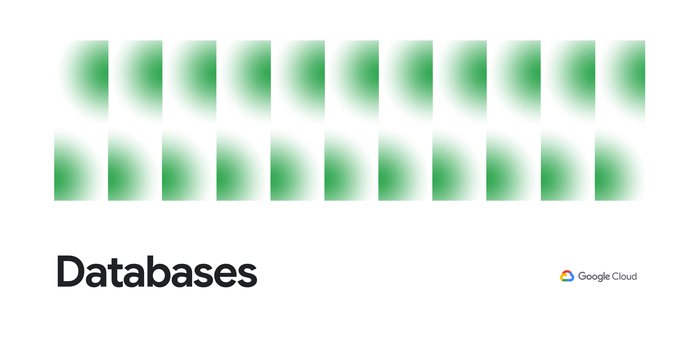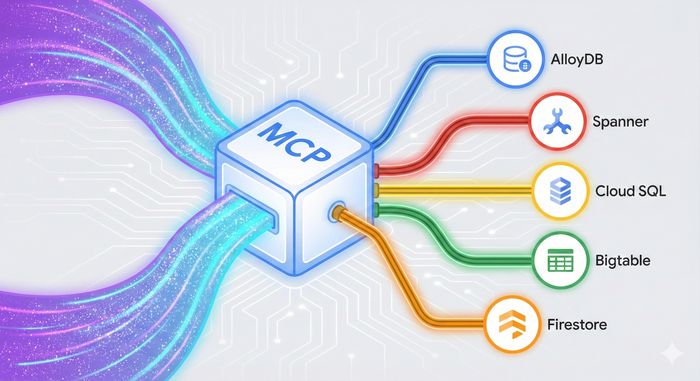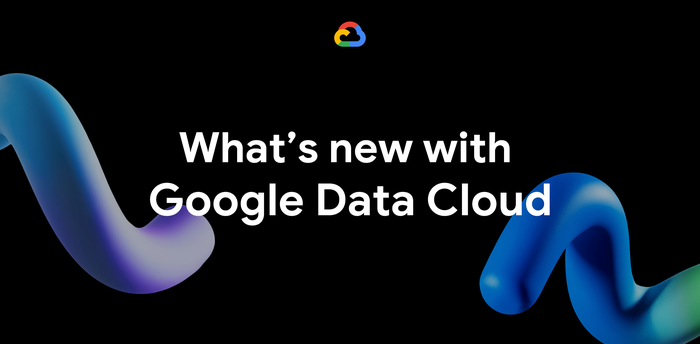Industry-leading reliability, global scale & open standards with Google Cloud Databases

Andi Gutmans
VP/GM, Data Cloud, Google Cloud
In today’s digital landscape, consumers expect near-instant feats of speed and personalized service packaged up as easy-to-use apps. To them, the sky's the limit when it comes to what’s possible from technology experiences. But meeting (and ideally, exceeding) their expectations is often a heavy lift for many companies—especially those running modern apps on legacy, on-premises databases.
Recent research shows that almost 70% of IT leaders believe technical debt is a significant threat to a company’s ability to innovate and on average, spend roughly a third of their budgets addressing it. Instead of focusing on innovation that will help differentiate them from others, companies and their development teams often find themselves grappling with challenges around latency, throughput, availability, and scaling.
The result is that despite the abundance of data generated and collected today, many businesses find themselves unable to incorporate data into decision-making and drive innovation. In a 2021 survey of Fortune 1000 companies, only 24% of respondents said they would consider their organization data-driven during the last year and just under 30% reported achieving transformational business outcomes.
If this sounds familiar, what can you do to ensure your databases are ready to support your next big idea?
Cloud database capabilities are the bedrock of transformation
When it comes to building new customer experiences, your choice of operational databases could be the difference between a satisfying customer experience and a frustrating one. And getting it right matters. Research from IDC shows that by 2026 enterprises that successfully generate digital innovation will derive over 25% of revenue from digital products, services, and experiences.
That’s why it’s critical for companies to take steps now to enable a modern database strategy—and for most, this hinges on migrating, modernizing or transforming in the cloud. In fact, Gartner predicts that 75% of all databases will be deployed or migrated to a cloud platform by 2022.
Our recently published guide, “Make your database your secret advantage with Google Cloud,” explores how Google Cloud database services provide you the best options for industry-leading reliability, global scale & open standards, enabling you to deliver modern experiences.
Operational databases power your most important applications and, by extension, your business. The right operational database can abstract away the complexity of running secure, modern applications and help your developers focus on high value tasks.
With that in mind, here are some critical tenets to keep in mind when choosing a cloud-based operational database:
Innovation is always-on and continuous. Business models today are always-on and need to be continuously available 24/7. What’s more, modern applications need to scale up or down effortlessly to meet any demand with minimal downtime. Cloud database services you need to serve customers wherever they are in the world.
The data lifecycle extends beyond the database. Data may be born in your operational database, but it’s just the first step. Look for cloud providers that make it easy to bridge the gap between operational data and analytical data with advanced AI and ML services in a connected, continuous environment.
Rebuilding is not a viable option. Moving to the cloud doesn’t mean starting over from scratch—plus, today’s consumers won’t wait around while you rebuild. You need a cloud platform that makes it easy to migrate applications from legacy commercial databases while supporting the latest open source tooling and development languages.
Don’t waste valuable developer time. Developers often spend too much time on maintenance, performance tuning, and scaling. Look for cloud solutions that automate provisioning, storage capacity management, and other time-consuming tasks to give developers more time to focus on building systems.
Google Cloud databases are powering today’s modern apps
Google Cloud database capabilities are simply unmatched for speed, scale, security, and reliability. With just a few clicks and minimal overhead, organizations of any size can deliver the best possible experiences for customers from anywhere. According to Gartner, GCP operational databases meet 100% of the required criteria, with an overall score that’s higher than the score of the largest alternative cloud provider.
For instance, leading Indian social media platform Sharechat migrated its transactional workloads from a NoSQL database to Google Cloud, allowing them to process terabytes of data efficiently while reducing costs by 30%. When the company’s traffic grew 500% over a few days, they were able to scale horizontally with zero lines of code change, handling all the extra load without any added stress for their team.
Here are four reasons why Google Cloud is the right partner to help you make an impact with your operational data:
1. You benefit from Google’s experience developing one-of-a-kind database systems.
Google Cloud empowers you to build and innovate with the highest levels of availability, reliability, global scale, and security based on decades of our first-hand expertise developing database systems. You get the same massive scalability and data durability for your applications that powers Google’s most popular products, like YouTube, Search, Maps, and Gmail.
Our core services Cloud Spanner, BigQuery, Firestore, Cloud SQL, and Cloud Storage, for example, leverage common infrastructure such as our highly durable distributed file system (Colossus), our large-scale cluster management system (Borg), and our high-performance networking infrastructure (Jupiter), to get the highest levels of availability and reliability i.e. up to 99.999% SLA across Spanner, Bigtable, and Firestore, and billions of transactions per second across Spanner (1 Billion+ at peak) and Bigtable (5 Billion+ at peak).
2. You don’t lose the freedom to work the way you want.
You get choice and a thriving database ecosystem that supports any app or use case with Google Cloud services. We offer popular open-source and commercial engines such as MySQL, PostgreSQL, Oracle, SQL Server, and Redis to reduce your learning curve. We provide a thriving ecosystem of the most popular third-party database API and products running on Google Cloud, such as MongoDB, Neo4j, Cassandra and more, offering you the best choices on the market. You can choose the best path to modernization while also getting the most out of your existing investments.
3. You gain the power to move faster and create more innovative applications.
Google Cloud databases provide one-of-a-kind infrastructure experiences that help developers go from idea to product faster. They offer advanced features and capabilities that help developers iterate and deploy faster, including an intuitive UI, robust client and server-side libraries, and provisioning and management automation as part of our managed services.
Best-of-breed services such as Firestore and Firebase are loved by developers because of how fast one can build an application end-to-end. Firestore has built a thriving community of more than 250K monthly active developers with Firestore apps powering more than 750M monthly active end-users using Firebase Auth. Industry-leading database observability features such as Cloud SQL Insights and Key Visualizer help developers address database performance problems, at no extra charge.
4. You can leverage the latest and greatest technologies across your data lifecycle.
Google Cloud databases integrate with our extensive ecosystem of industry-leading Google Cloud services. Break down operational silos, build data pipelines, generate real-time insights, and make better business decisions with integrations across BigQuery, Google Kubernetes Engine, Dataflow, Datastream, Pub/Sub, and Cloud Functions. Unify your data lifecycle while ensuring you get the best of Google Cloud at every stage of your development. Our serverless Database Migration Service (DMS), is designed to make migrations to Cloud SQL easier, faster, more predictable, and more reliable. More than 85% of the migrations using Database Migration Service are underway in less than an hour.
Bridge the gap between operational data and analytics by using BigQuery federation to query data residing in Cloud SQL and Cloud Spanner without moving or copying it. BigQuery users query over 125 petabytes of data in Cloud SQL on average in a month.
Are you ready to migrate, modernize, and transform for the future? Check out our guide, “Make your database your secret advantage with Google Cloud,” to learn more about Google Cloud database services that can help you deliver modern experiences.



